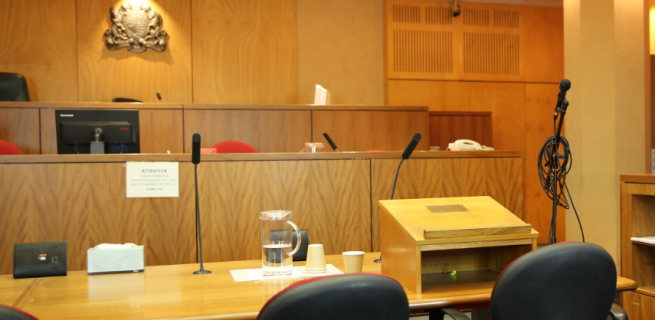Would you rather be tried by a judge or a jury?
Whether or not juries have a place in the modern judicial system is a debate that has been going on for many years.
For centuries, the right to jury trial has been fiercely guarded as a mechanism that guarantees a fair and unbiased hearing in court; as the decision is made by laymen rather than an unelected judge chosen by the government of the day.
But this does not mean that juries are more likely to find people ‘not guilty’ – indeed, most criminal lawyers who are in the courts day-in day-out will tell you that they would prefer to be tried by a judge alone.
Statistics back up their views: between 1993 and 2011, 55.4% of defendants tried by a judge alone were found ‘not guilty’ . By contrast, just 29% of those tried by a jury were found ‘not guilty.’
Why are juries more likely to convict?
There are numerous reasons why juries may be more likely to convict.
For starters, many jurors are less-than enthused to have to give up their lives for the duration of the trial.
The task of administering justice may not be taken as seriously, and there have even been cases reported of jurors deciding matters by tossing coins, drawing lots or even using an Ouija board!
In addition, jurors often find it far more difficult to be impartial.
Unfortunately, race, religion and appearance can all have an enormous effect on the final verdict.
Jurors are not easily able to put aside prejudices during the trial in the same way that a judge does; especially in cases where particularly abhorrent crimes are alleged.
One London man selected for jury duty in a child sexual assault matter even went so far as publishing the following comment on his Facebook:
“Woooow I wasn’t expecting to be in a jury deciding paedophile’s fate, I’ve always wanted to F*** up a paedophile & now I’m within the law!”
Such bias towards convicting seems, at least in part, to be a product of media reporting that regularly assumes that those who are charged with criminal offences are probably guilty.
And the unprecedented media saturation of present times – with the increasing popularity of social media sites – can also impact on the ability of jurors to reach impartial decisions based upon the evidence at trial.
Indeed, there have been many instances of jurors googling defendants, or even brazenly making contact with the defendant on Facebook – both of which are problematic and dangerous because they bypass the admissibility checks of a court hearing, and are also a criminal offence.
These are all good reasons why a defendant may be better-off with the trained expertise of a judge, rather than with modern jurors.
Judge-alone trials are also quicker and therefore less expensive both for defendants and the community.
When can I request a judge-alone trial?
Unfortunately, it’s not always possible to get a judge-alone trial simply because you feel you would get a better result.
There are rules which dictate when a judge-alone trial will be granted.
Section 132 of the Criminal Procedure Act NSW says that either the accused or the prosecutor may apply for a trial to be decided by a judge alone.
If both the prosecution and accused agree, the court must make a ‘trial by judge order’. But if only the prosecutor requests the order, the court cannot order a judge-alone trial.
If only the accused requests a judge-alone, the court can order such a trial if it is in the interests of justice to do so.
The court may refuse to make an order if the trial will make a factual finding that has to do with community standards.
However, it is more likely that a judge-alone trial will be ordered if the case involves complex laws that a jury may not be able to comprehend.
Media coverage of a person’s case may also mean that it is in the interests of justice for the court to order a judge-alone trial.
However, as Justice McCallum once stated, the “interests of justice are not to be confused with the interests of the accused.”
But given the unfair risks of a jury trial, and the potentially devastating consequences of those risks, perhaps it is time to give defendants the choice.












Which Act covers right to Jury Trial as I have been convicted of a criminal offence – sexual assault – touching insane female’s breasts by judge alone, whom I allege was biased against me as I am of Pakistani ethnicity and have coloured skin, in Waverley Local Court in 2007? II never agreed to waiver my Magna Carta right to jury trial.